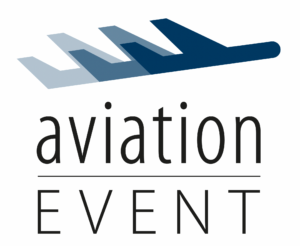AA quoted in Politico
Etihad ensnarled by Europe’s airline ownership rules
Etihad Airways suffered two financial catastrophes in Europe in less than six months, and some of the blame is being put on EU regulations on airline ownership.
In recent years, Etihad sought to expand into Europe by buying minority stakes in EU airlines. The Abu Dhabi-based carrier couldn’t do more because for an airline to be regarded as an EU carrier, it must demonstrate it is majority-owned and effectively controlled by EU nationals.
The situation turned out to be a disaster for both Etihad and the European airlines it invested in.
“Irrespective of whether Etihad’s strategy was right or wrong, the United Arab Emirates company was a willing investor in European airlines to expand its network and brand,” Andrew Charlton, managing director of Aviation Advocacy, a Geneva-based consultancy. “But it was unable to fulfill the strategy because it is not allowed to majority own or control the airlines it bought into.”
In 2012, the company took a 29.2 percent stake in Air Berlin, Germany’s second-largest airline, and since then invested more than €2 billion. This week, the German airline declared bankruptcy, and its planes are flying only thanks to a €150 million emergency loan from the German government.
Etihad also led a €1.8 billion investment in Alitalia in 2014, taking a 49 percent stake — the maximum permitted by EU law. In April, the perpetually troubled Italian flag carrier slid into bankruptcy, being placed under special government administration and kept alive by a €600 million bridge loan.
Air Berlin and Alitalia, in need of rescuing and looking for bidders, face a situation in which they may not find an interested investor from within the bloc, but EU rules make it unattractive for foreign airlines to get involved.
The European Commission in June published guidelines for the interpretation of the existing rules as part of its Open and Connected aviation package but gave no indication it plans to change the system.
“We have to make sure that [foreign] investors are not discouraged or de-incentivized by a too strict interpretation of the ownership and control rules,” said Ulrich Schulte-Strathaus, managing director of Brussels-based consultancy Aviation Strategy & Concepts.
Etihad did not immediately respond to a request for comment.
For other airlines, the desire to revamp EU ownership rules is growing increasingly acute ahead of Brexit.
Ireland-based Ryanair has many U.K. shareholders. Once they are no longer EU citizens, the airline may have to force them to sell their shares to keep its status as majority-EU owned. U.K.-based carrier easyJet recently set up an Austrian subsidiary to help it continue flying within Europe after Brexit.
International Airlines Group, the parent company of British Airways, Aer Lingus and Spain’s Iberia and Vueling, is pressing hard for a rethink of ownership rules because it likely won’t meet the definition of EU owned and controlled after Brexit.
Willie Walsh, the head of IAG, last month pleaded before the European Parliament for the bloc to relax its “arcane” airline ownership law to bring it inline with other global sectors like banking or automotive.
The rules are a hangover from the days when airlines were seen as symbols of the countries that owned them, he told the Irish Times. “I have been arguing this for 20 years,” he said.
By Cathy Buyck
http://www.politico.eu/pro/etihad-ensnarled-by-europes-airline-ownership-rules/
